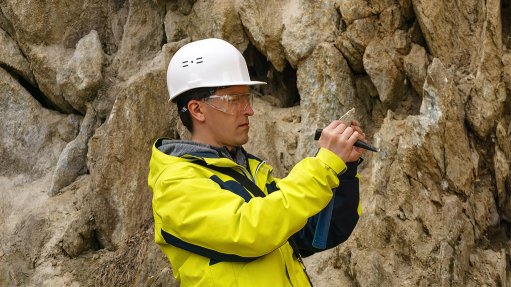
EXPLORING THE OPTIONS Minerals Council South Africa hopes to engage with prospective exploration companies to address the exploration deficit
South Africa’s mineral exploration sector is underperforming, with as much as a 15-year deficit in terms of the required exploration activity for a minerals- and mining- prolific country, posits industry employers’ association Minerals Council South Africa junior and emerging mining leadership forum chairperson Errol Smart.
With little to no major prospecting projects currently in the pipeline, the country has, in the past two decades, fallen from 5% of global exploration expenditure, to less than 1%, with the greatest decline from 2020 to 2022.
“Importantly, one of the fundamental reasons for the dip is the lack of an efficient, transparent, off-the-shelf cadastral system to manage mineral right applications, transfers and sales,” he stresses.
Smart will be a panellist of a discussion, titled ‘South Africa’s empty exploration pipeline’, at this year’s Investing in African Mining Indaba, during which the declining exploration sector will be addressed.
“The Minerals Council has, for years, lobbied the Department of Mineral Resources and Energy for just such a system as one of the mechanisms to reignite South Africa’s exploration sector.”
Exploration is key to ensuring future mines can be built, as it typically takes up to 15 years for a mine to be found and developed, encompassing the time it takes for the discovery of an economically feasible mineral deposit to the construction of a mine, he points out.
With the dearth of exploration in the past two decades, recovery in this field of minerals development depends on the urgent creation of a regulatory and investment climate that attracts prospectors, states Smart.
“This is vital as South Africa develops a critical minerals strategy and finds its place in the global supply and demand chain for these minerals.”
Smart points out that some of South Africa’s neighbouring countries are better examples of how exploration can be pursued, and where modern, off-the-shelf digital cadastral systems are deployed with great success.
Key Minerals Region
South Africa has many of the critical minerals needed for low-carbon economies and technologies to reduce reliance on fossil fuels and the impact of carbon emissions, including platinum group metals (PGMs), chrome, manganese, copper and rare-earth elements.
“While South Africa is mining many of these minerals, there are many more that could potentially be found and extracted if the constraints on exploration were lifted,” Smart notes.
For the sake of South Africa’s mining future, it is vital that these obstacles are unblocked, and that the benefits can start to flow through in the form of investment in mines, society and industry.
These investments will go towards bolstering the development of a modern and competitive economy that realises the benefits of its mineral wealth for its citizens and the rest of the world, he adds.
Indaba Focus
Minerals Council has identified exploration, the security of critical minerals, logistics, PGMs and the green hydrogen economy as key areas of interest for the Investing in African Mining Indaba.
Other topics in focus are issues such as proximity detection systems for mining machinery, mining sustainability standards and prosperity for near-mine communities after mining.